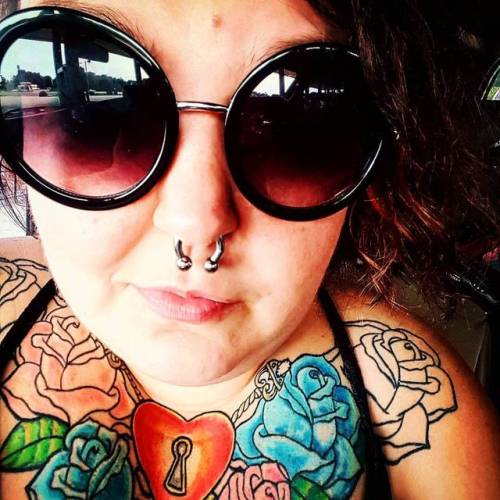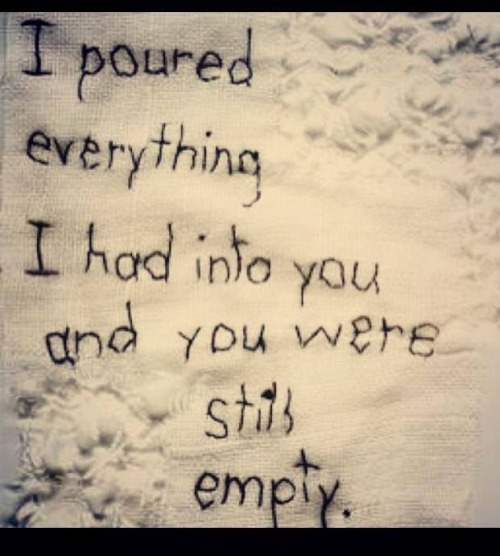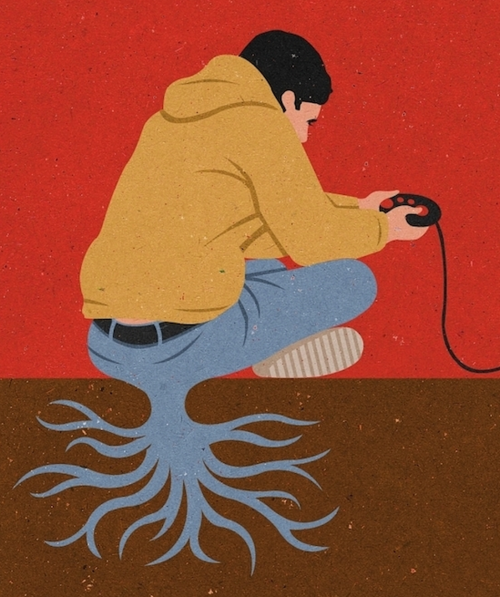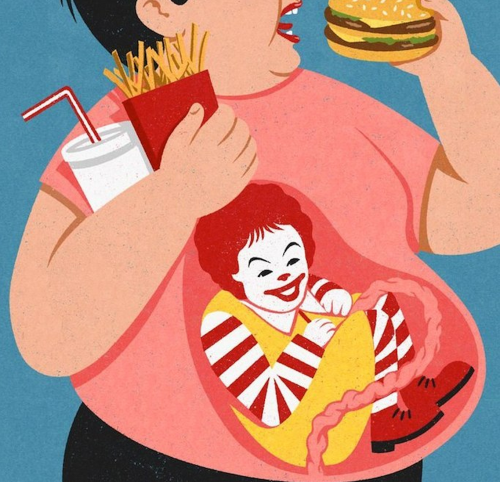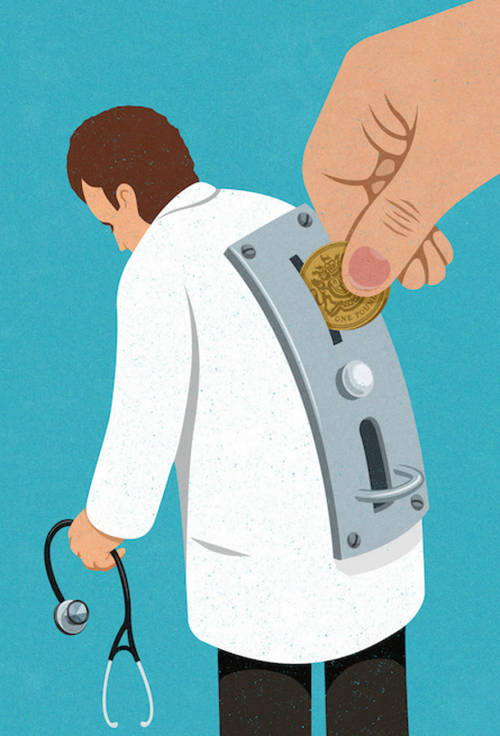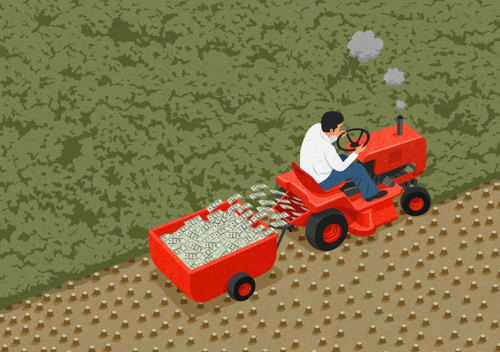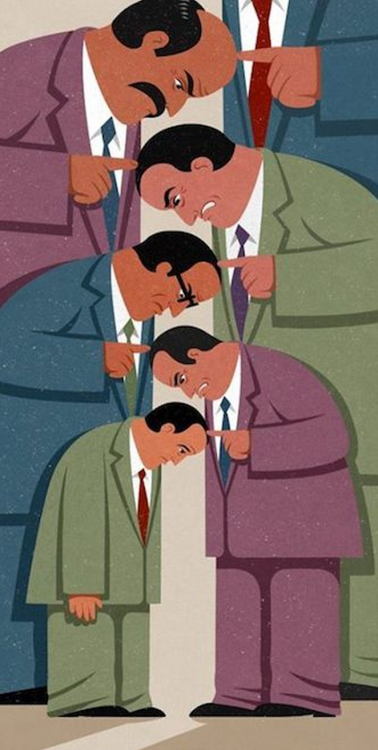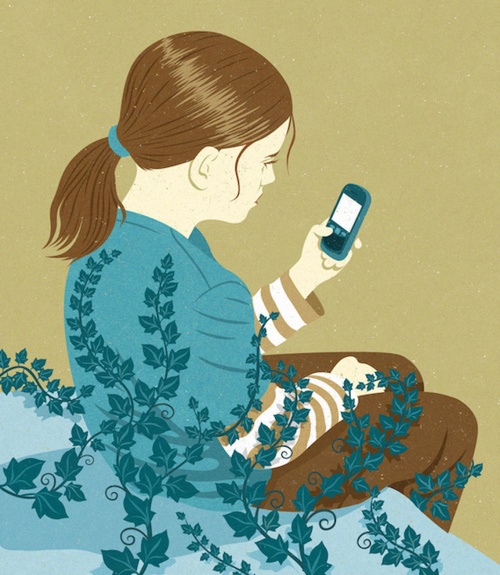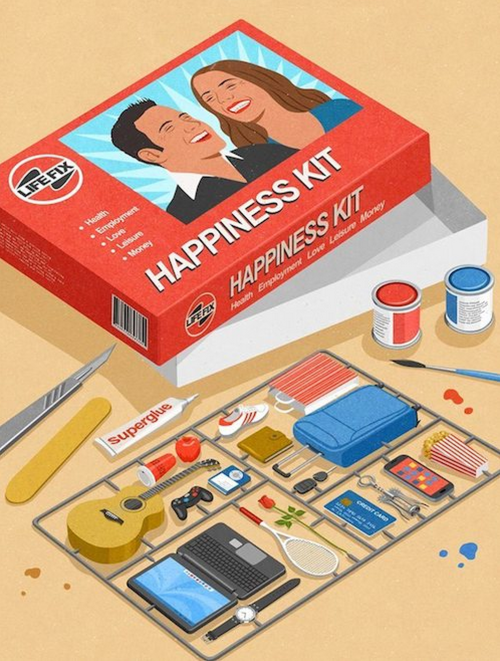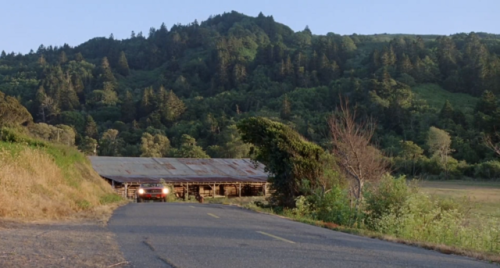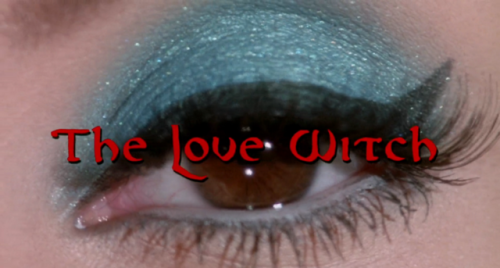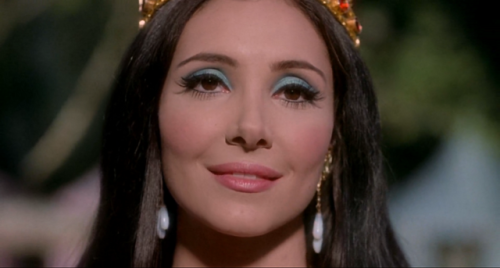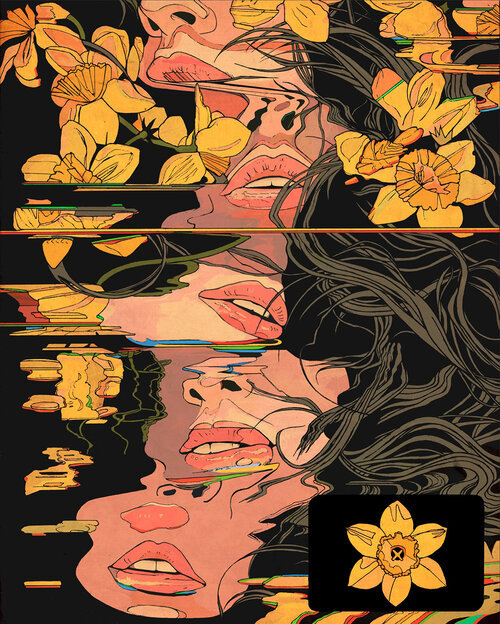#narcissism
Who is Anna Delvey? Where did Anna Delvey come from? What is Anna Delvey’s mental health diagnosis? These are some of the questions I’ve been asked lately. Well, I don’t know her personally so I can’t diagnose her, but we’ll be looking at some of her personality traits shown in the media (60 Minutes, Netflix, newspapers etc). I want to know from you guys… What do you think? Is Anna Delvey (or Anna Sorokin) a “villain” like she is made out to be or is she an antihero?
why say that when the whole world is watchin and the paparazzi is flockin?
So… this photo is kinda important.
I took this while we were prepping for one of the shoots the other night, and didn’t really notice it until I had uploaded all of my images to the computer.
This is what I look like naked. No retouching or fancy edits or whatevs, just this.
I have had loads of issues with my body over the years and I think I am finally starting to become comfortable with myself. It’s pretty rad.
In regards to the culprit of this blossoming boost in confidence, I blame shooting porn/smut/erotica. Or just sexy things in general.
Yep.
Post link
I know it was a bit ago, BUT a little update on how mother’s day went this year:
My sibling and I, for the past few years, gave our abusive mother appeasement gifts. Mostly because I’d likely get physically & verbally attacked if we didn’t.
This year was different. We didn’t do a single thing for her. Both of us are just completely fed up with her.
Thankfully it was a cold & rainy day, so she slept most of it. Only exploding at me once about something ‘unrelated’ (yeah sure). But she got nothing because she deserved nothing.
With Mother & Father’s day coming up, please remember you are not required to be grateful to abusive parents. Please remember,
- Don’t break no-contact.
- Don’t let family guilt you into breaking no-contact.
- Don’t feel guilty for living w/ them as an adult, you’re doing your best.
- Don’t feel you’re betraying yourself if you have to give ‘appeasement gifts.’
- DO put your mental & physical wellbeing first, as we know they won’t.
- Maybe get yourself something, so many of us had to be our own parent anyway.
I’m really glad that so many people are finding this post helpful but it also absolutely breaks my heart that so many people can relate.
Stay strong & keep going you can do it!
Moralistic Narcissism
So somatic narcissism and cerebral narcissism are established categories, but consider: one way to get self-esteem supply is to be More Moral. I think this is a useful category of narcissism which is very under-recognized.
Narcissism is largely support beams for injured self-esteem. Something you can always lean on to feel good about yourself no matter how much the world hits you with hurtful judgment, shame, embarrassment, ostracism, and so on. Something that lets you reliably do ego-saving or face-saving redirects like “whatever, I’m still better”, ideally while adding “in every way that matters”.
Somatic narcissism does that by taking pride in bodily or physical things. Cerebral narcissism does that by taking pride in mental things. Moralistic narcissism does that by taking pride in things highly esteemed as moral - honesty, religious piety, altruism, being virtuous, unmasking bad people, persecuting evil, and so on.
I think a whole lot of narcissism goes unnoticed because it looks like moral righteousness, zeal, or extremism aligned with widely held values.
One thing I’ve been realizing for a while now is that arrogance and conceitedness and so on, is not a question of objective merit, it’s a question of self-esteem neediness - narcissism, in a sense.
Like, it doesn’t matter how great I am, what matters is that I give too many fucks about how great I am. The problematic part isn’t recognizing above-average merit in the self - the problematic part is giving any amount of fucks about it, at an emotional level. Giving too much fucks about your merit relative to others, or about getting accurate recognition for it, is what motivates the bad stuff.
The more I understand the narcissism in myself, the more I see the image of Narcissus looking at his reflection as apt.
I’ve said before that this image misses a critical point: that narcissists are best understood as having trouble seeing themselves well, and severely hurt by seeing themselves poorly, rather than as constantly seeing themselves well. This is still true, but it was incomplete.
The missing part is this: narcissism is not so much the wrong relationship with your reflection, as much as it is too much of that relationship.
Near as I can tell, past a certain point, the improvement is to just find a way to truly not care. Not cover deep true acute caring with the chosen and declared value of not caring. Not protect against the pain of our perceived flaws with true evidence of our above-average merits. But just… look less often at the reflection.
Of course this is an interlocking process where you achieve not looking by having enough experienced evidence that you don’t need to look, and yeah, having true merit and only reasonable flaws is part of getting to that point.
But past a certain point, a big part of being less narcissistic is practicing not looking, not checking your reflection, I mean especially not even the reflection in your mind, practicing just more fully doing whatever you are doing in the moment.
Hey pretty.
Don’t you wanna take a ride with me?
#poe #cheapsunglasses #narcissism #treatyoselfie #roadtobama
Post link
Being drained by a narcissist is the absolute worst feeling. To be discarded so hastily…. It is terrible. I feel violated. It doesn’t happen just once; it’s over and over and over. Narcissists are like a drug to the energy supply, like the supply is a drug to the narcissist. They can read, understand, and control your inner most thoughts and weaknesses. The emotional withdrawals after you’re thrown away are like withdrawing from a class A drug and can even cause physical symptoms. It is mind-blowing to me that these emotionless humans incapable of emotions really do exist. The entire mental disorder is baffling and terrifying. I only wish I would have known what it was before I was so carelessly caught in the path of one.
Post link
Why Covert Narcissist Use Triangulation?
One of the main symptoms of narcissistic personality disorder is a cognitive distortion known as black and white thinking. Narcissists generally lack “whole object relations” and only see things as black or white.
Black and white thinking doesn’t allow the narcissist to see that people at the same time have qualities and flaws; they believe that people are either good or bad. A covert narcissist doesn’t care about your feelings. They don’t respect others and have no empathy for other people’s emotions. They only want to control and use triangulation to protect their ego and maintain control.
How to React to Narcissist Triangulation?
Ending the manipulation in narcissist triangulation is the only way to escape the toxic relationship and maintain good mental health.
Here are the three essential steps in ending the narcissistic abuse and recovering from it.
1. Recognize that the Narcissist is Using Triangulation
The first step in ending the triangulation is becoming aware of it. Recognizing that triangulation is happening will empower you to stop feeling guilty. It will also help you realize that the problem is with the narcissist, not with you.
2. Cut Off the Contact with the Narcissist
The most effective way to end triangulation is to cut off the narcissist ties. Once you leave the relationship and stop providing attention to the narcissist, the triangle fails.
3. Set Clear Boundaries
If you must stay in touch with the narcissist (e.g., share children, work together, etc.), make sure to set firm boundaries. Boundaries are an essential aspect of self-care that allows you to stop the abuse cycle in narcissist triangulation.
The Love Witch (2016)
Dir: Anna Biller
DOP: M. David Mullen
“My therapist told me that I’m not unusual at all.”
Post link
I’ve been deeply heartbroken for two years. I’ve faced a lot of pain, negativity, deceit, and darkness. I fell in love with a married person who didn’t love me back and who I thought was my twinflame , I felt deeply manipulated by somebody who considered themselves a “friend”, I moved home and faced domestic abuse from the narcissistic tendencies of my family, I questioned my sanity, and I miraculously found my way out of it all.
I have felt locked up, unable to share this with the world. But now is that time. Here’s my truth. Please watch my video. Link is in my bio or can be found here for outside platforms: https://www.youtube.com/XBrittney89
#narcissisticabuse #narcissists #twinflames #twinflame #spirituality #ascension #unconditionallove #truth #recovery #mentalhealth #narcissism #narcissisticpersonalitydisorder #narcissistabuserecovery #domesticviolence #domesticabuse #codependent #codependentnomore #codependence #strength #throatchakra #throatchakrahealing #awakening #selflove #selfcare #bodylovebritt
https://www.instagram.com/p/B0oCDfXnVEK/?igshid=1m1sxdn1shj9m
Post link
How Disney Movies Program Your Mind by The Cracked Podcast
The Disney filmography from the 1930s to today perpetuates an antiquated American value structure that depicts misogyny, racism, classism and narcissism, yet as kids watching these films and parents showing them to our children, we never think twice about it. Should we be more vigilant in deciphering what these movies are really about instead of just blindly trusting the logo on the Blu-Ray case?
Should we be so cavalier in showing Disney movies to our kids without any kind of pretext or decompressing post-film discussion? I mean, when was the last time your parents sat you down after, like, a spirited viewing of Dumbo to explain that those crows are super not okay, or that like, running away from home when you’re sixteen to marry literally the first human man that you’ve laid eyes on is probably not going to be quite as romantic if you do it in real life? There’s usually not a castle involved. And I’m going to go ahead and say that that’s probably happened zero times. Parents have never tried to do that or unpack any of these things with us, and that’s kind of the problem with all of these movies. DumboandSnow WhiteandSleeping Beauty and like, two-thirds of the Disney catalogue, they were all released in theaters over half of a century ago. The country was a very different place back then. It was dominated by an entirely different value system, a lot of which was actively harmful to lots of people. And our parents, and previous generations, their parents too, helped sort of keep these values alive just by continuing to show their kids these classic Disney movies.
Sexism
When you look at Snow White, […] her superpower is being pretty only when she’s asleep. Her life is saved multiple times – the seven dwarves are about to pickaxe her in the head, and then she rolls over while sleeping and they’re like, “Whoa! She’s so pretty! Whoa, that chick is hot!” And then at the end, the prince comes and kisses her to raise her from the deep sleep from the poisoned apple. Any time she acts with agency, like when she runs away from the castle, she’s just like, running into trees and is just like a dizzy idiot and when a clear witch walks up and is like, “here’s an apple,” she makes the obviously wrong decision. The moral is just, “Women, this is what happens when you think for yourselves – just, better seen, not heard. Better unconscious, actually, if possible.”
Friendship
There’s an undercurrent in almost every big Disney movie of, a lot of weird lessons about how romance works, and also a lot of weird lessons about how friendship works. For movies that can depict everything from the Grimm’s Fairy Tale cannon to Huns invading China to, you know, animals under the sea, they basically depict every romance the same way, and they depict the friend that works – at least for princesses – in a really weird…it teaches you to be selfish, almost, I think, the way they depict friends.
So when you look at most of the princess movies – and I think those movies are almost like the central Disney movies – they make a weird point of almost all the princesses having animal friends or, in Beauty and the Beast’s case, having household object friends, in Snow White’s case it’s a mix of dwarves and animals who come and land on her. But like, Pocahontas has an entire tribe of humans to hang out with – all the other humans in her tribe hang out with humans – but what Pocahontas does is hang out with a raccoon, and a hummingbird, and a talking tree. And Ariel hangs out with fish under the sea, even though she has all these other mermaid friends she could hang out with, and they hang out with each other, and I think it makes a lot of movies have best friend characters for the main character who are kind of subordinate – like, especially romantic comedies will have a subordinate best friend idea, or a less-cool best friend idea – but I think Disney movies push it in a really weird way. They make it very specific that the main character, who you’re supposed to identify with as an impressionable kid, all their friends are not as important. All of them are just a candlestick or a flounder that is there to support you, and help you become a princess, and help you get a prince and live your own life, and I feel like that suggests and implies to a kid that friendship is about gathering companions to help you with your quest.
They’re almost gods in comparison to their friend group because they’re like this higher species that is able to communicate with them. The friends are always cleaning up after them, usually to their own detriment. In The Little Mermaid, Ariel about gets Sebastian executed and like, gets Flounder in trouble, and she’s just ruining all these people who are her friends because she just has to keep pursuing this prince who she’s seen once. […] In Disney movies, every friend is the “ugly best friend”, if you notice. Like, the only attractive characters are the main characters. Like you know instantly if you see an attractive person, oh, they’re the main character, or maybe the bad guy. But like, every other supporting character is either the most cartoonish looking goofball, or like, an animal.
I feel like we give a lot of credit to like, the self-esteem movement of the 90’s for like, raising kids who always think that their point and their point of view is important, but it’s really like, deep down in the Disney universe. You are important – the world literally revolves around you – and other people who look like you, they don’t really matter. You’re better than them, they don’t like books as much as you…
Romance
In addition to not really depicting friendships that are two-way streets, where you can gain so much by giving to people in addition to having them help you win a generic guy, in terms of how the romances work, it’s a very set pattern in a way that feels beyond the reductive that a screenplay needs to make the story interesting. It’s always somebody’s first love, the woman is always in her early 20’s or maybe younger, and also they always pretty much jump from meeting each other and maybe completing some sort of danger (defeating a villain) to kiss and marry at the same time (which I know is, like, working around the realities of sex and everything), but it’s strange to make a whole series of movies that have no room for stories about someone who has dated someone before, or someone who’s like, still getting to know someone, or just any of the different steps in a relationship because there’s so many compelling stories you can tell with that.
It suggest that, once you like someone, they’re going to immediately like you back (because you’re the prettiest person), and if they don’t, you become like, this ruined, weird…you stake your life on it, in all these stories.
They put so much pressure – with that narrative – on kids. So when you hear stories about how, oh, this couple has been married for 50 years and they were high school sweethearts and they were their first boyfriend and girlfriend or whatever and we think, oh, that’s great. Like, why do we think that’s great? Like, sure, I mean, it’s fine for them, but why is that…it’s like, they’ve made it, so that’s like, something to shoot for, or something?
So nice to know that they weren’t out banging around, you know.
Right, so they end up – maybe indirectly, I don’t know – putting a lot of pressure on kids when they first get into high school or middle school or whenever you have your first serious relationship, where it’s like, it feels so serious because it’s your first step, finally, into this adult world that you’ve been learning, or I guess, watching since you were a kid.
It treats the romantic aspect of your life like it’s a video game speedrun. Like, the sooner you get this done, the sooner you have a relationship that works and you did it, you win. There’s nothing meaningful in, like, dating someone once, getting to know them, breaking up amicably or not breaking up amicably, having experiences… And I know that’s a lot to unpack as we talk about it, but there are so many complicated things in these movies that you would think they could do something, at least a little bit, along those lines.
And I don’t know how many exact relationship lessons people are taking from those moments in the movies, but it really does lead you to believe that at least what you care about and who you like is going to like you back. It’s such an unhealthy idea to implant in kids’ heads. Like, Charlotte’s Web is like, oh, you like this spider? The spider is fucking dead now. Because that’s what happens in the world. But Disney princess movies in particular seem to just be really about wish fulfillment in a way that’s super unhealthy.
Classism
The thing I’d never noticed before, and once I saw Anna do it in Frozen, I realized it had happened in every Disney movie I’d ever seen, which is, in the beginning, when she’s singing her song about how excited she is to have her party – her big ball – she runs through the castle and all her servants are there preparing, and she’s there grabbing plates off stacks and putting them on other people’s stacks and shoving them around playfully and is so happy, and all her poor employees – servants – are just like, yeah, this is how we do it. And she’s obviously an aspirational character. And it’s everyone. Everyone in the Disney universe treats anyone who works for a living like a prop that they just have. Simba, when he’s excited about one day being king, torments Zazu by – not just Zazu, everybody, he’s dancing on the heads of his subjects, literally frolicking, climbing over their face and, if any of them defy him or screw up or hurt him…they’re going to get eaten by king lion, they’ll be beaten.
The overall philosophy of The Lion King, like that circle of life speech, when he’s like, “ah, that makes sense, Dad,” is basically like, other people, other beings who also have the same amount of ability to think and act as us, they’re not as good as us, so we eat them…and poop out their bodies. So many rich fathers have given that speech before, like, verbatim. “Well, this is why. It’s the natural order of things. It’s…they’re happy doing what they do for us.”
It’s just shocking how you can pause and think, at any point during any Disney movie, “What about poor people right now?” Elsa freezes Arendelle and like, everyone’s huddled in the castle – all the rich people are huddled in the castle – but if it gets much colder, they’re going to freeze. What about everyone who doesn’t have a castle right now? It’s a coastal village, too. Did Elsa kill everyone? How many people froze to death that are not even mentioned in the movie?
There’s more. Aladdin starts off living in abject poverty and then, he gets the lamp, and his first wish is, “oh, I want to be a prince.” Somewhat of a selfish wish when you live at the bottom of the greatest wealth gap ever seen, and, two scenes ago, you were sharing one lump of bread with two starving children. But then later, Jasmine meets those same two kids who are starving and also shares food with them […] and at no point does that ever come up again. What happened to those kids? Aladdin gets to go and be wealthy, and all the poverty he came from – like, clearly the system of government is not… The point is that life sucks for everybody except the Sultan, Jafar, and Jasmine, and her white tiger pet.
And we see how business as usual is because when Jasmine goes out there, she’s not necessarily being, like, charitable, she just doesn’t understand because she’s been in the palace, so she steals because she’s just like, “oh, here you go, you’re hungry.” She doesn’t understand that the kid can’t pay for the apple, she just thinks that he can’t reach it or something. She’s totally ignorant. And then that dude is about to chop her hand off – like, that’s how business as usual goes in Agrabah, like, that’s just it! And she does nothing with this information. There is no comprehensive reform of Agrabah, of its justice system. She goes back to the castle and is like, “what happened to Aladdin?” not, “what happened to that child?”
It is interesting that before the rise of Disney in the 30′s, 40′s, America had unions and was, you know, labor-conscious, and then Disney rises up and suddenly capitalism and anti-communism – which, Disney actually helped with – they fall out once Disney goes away, dies, if you believe their version of events. And once Disney classics start coming back – The Lion King,Frozen,The Little Mermaid – we’re suddenly…we don’t care about poor people anymore. Disney controls our attitudes toward poor people.
I transcribed a large portion of this podcast episode because it was so good. It may be easy to say, “oh, it’s just a kid’s movie,” or, “it doesn’t matter,” but these movies shape our culture, especially as things that were integral to our childhoods. I can connect with another person really quickly by singing “I’ll Make A Man Out Of You” with them (which I’ve totally done before), but I’ve never then said, “our society’s concepts of masculinity are fucked up, right? why is it that even though Mulan touches on this, and is all about how a woman can excel in what is thought to be a man’s role, we’re still conditioned to think that it was a happy ending because she got a man in the end?”
We accept the ridiculous portrayals of romance, friendship, class structure, gender roles, etc. present in these movies because “they’re just movies” and we’re smart enough to realize that they’re not how real life works – or are we?
Internalized Misogyny: “I’m Not Like Most Girls!” by Bleeding Feminism
Now please stop claiming that you don’t act like a woman. It doesn’t make you a special fucking snowflake. It makes you a perpetrator of misogyny.
I grew up and I started actually thinking about this all-too-common phenomenon: girl-hate. It’s so rampant that it’s contributed to the stereotype that all girls are catty and horrible and some of us have started insisting that we’re “not like other girls” to separate ourselves from all these generalizations, saying that we’d rather hang out with boys, because “boys have less drama”. Here’s the thing, though: homogenizing the entire female gender down to one or two negative stereotypes is sexist. When girls perpetuate it, it’s called “internalized misogyny”. And sadly, I’ve found that girls are guilty of perpetuating misogyny almost as often as men are.
If we, as a society, would stop conditioning girls and women to feel like we have to constantly compete with each other, girl-hate would pretty much stop. If we, as a society, would stop trying to tell girls and women that the most important thing is male attention, we’d stop feeling threatened by other girls and how they look and we’d stop ripping our fellow ladies to shreds over their appearances. Society has told us that male attention is the ultimate prize and that every other girl in the room is competing for it. It’s made us feel that we’ve “won” if a man thinks we’re attractive, so we get angry if another girl in the room might take that away from us. This is about the time we start sizing other ladies up: deciding that she has the better body, but your face is nicer and hopefully that makes up for it. This is about the time you start comparing your hair and your clothes to hers, start looking for every flaw you can possibly find in this human being just because she’s there.
We feel that we’ve “won” if a man thinks we’re special. This is part of what contributes to that god-awful “special snowflake” complex that leads many girls to attempt to separate themselves from the rest because they have to be better: if unique and special is what gets attention, then I have to be the most unique and special! Cue loads of posts online by girls who think they’re better than other girls because they like staying at home and using the internet more than they like going out and partying.
This is behavior that’s been programmed into women by society our entire lives, so it won’t be easy to un-learn. I’ve internalized much of this myself. Us girls, we’re victims – victims of a society that constantly tells us we’re too fat (but we can’t be too skinny, either), too ugly (but don’t wear too much make-up or you’ll look “fake”), that your clothes have to be amazing (but caring about fashion is petty and shallow), that you can’t be a doormat (but if you’re too assertive, you’re a total bitch); a society that screams at us from every billboard and magazine cover: YOU ARE NOT GOOD ENOUGH. And because we perceive each other as threats, we rip each other to shreds.
This reminds me of the Cracked podcast episode on harmful Disney tropes that I listened to a few days ago. There was a particularly salient point on the portrayal of friendships in Disney movies: “Pocahontas has an entire tribe of humans to hang out with – all the other humans in her tribe hang out with humans – but what Pocahontas does is hang out with a raccoon, and a hummingbird, and a talking tree. And Ariel hangs out with fish under the sea, even though she has all these other mermaid friends she could hang out with, and they hang out with each other, and I think it makes a lot of movies have best friend characters for the main character who are kind of subordinate”. Disney princesses, whom girls are supposed to relate to and aspire to be, don’t have many human friends, let alone girl friends. They’re always the “other” in some way, and in the end, they’re vindicated by being the object of pursuit for a man. Disney princesses are the epitome of special snowflake syndrome.
A related article is Cara Ellison’s S.EXE: Gone Home. She writes about her internalized misogyny and how it was exposed in Gone Home:
I never had a sister, and there never was a feeling, when I was a teenager, that any other girl could have moved me or made me sympathetic towards them. Girls didn’t like games, and I liked games. Therefore I was not like other girls. I was a better sort of girl. I was special to the nerd boys. I liked cool stuff. I liked Street Fighter II and I could beat everyone with Chun Li and boys whooped and cheered when I did it. They admired me. That’s who I was. That was my identity.
But Katie and Sam in Gone Home like each other. They are young women who like each other. […] And the thing about the young women that inhabit this house: they are just like I used to be, only they aren’t alone.
Women’s voices are the only voices you hear in the Gone Home house. Isn’t that unusual? I mean yes, for a video game. But when is the last time you watched a film or saw a TV show where the only voices in it are women’s?
When I was growing up I never knew women could be in punk rock bands. I thought women were uncool. And I didn’t know about ‘sisterhood’. I disliked other girls. I didn’t trust them. But the Gone Home house feels safe. A space that exists in which women love and appreciate each other.
In a way this is the fantasy house I always wanted to inhabit. The Gone Home house is a place where it’s okay, maybe even normal, even cool, to be a girl.
Gone Home offers me a girlhood I never had, and it recognises I am an adult woman who needs that fantasy too.
There are barely any TV shows or movies centered around only women, least of all a show that centers around happily single women. There’s The Sisterhood of the Traveling Pants and…what else? Even music videos by so-called feminists promote misogyny. Music videos are one of my most abhorred mediums because, for some reason, most of the videos with mainstream singers default to sexualization, cultural appropriation, exoticization, or using animals as props. I’ve talked about Taylor Swift’s Wildest Dreams music video before, but her Bad Blood video (which won the VMA Video of the Year award) is also terrible. Sexualized female bodies under the guise of female empowerment? Check. A celebration of thin, white bodies? Check. Pitting women against each other? Check. Let’s not even get into the sexual politics of wearing leather (to be sexy) and glorifying the consumption of animals (to enforce that these women aren’t on diets).
Yes, I have thing against Taylor Swift. Amy Zimmerman put it well:
We’re living in the heyday of the Swift wave of feminism—go girls, no boys allowed, etc. It’s the kind of wave you ride in a highwaisted retro bikini next to your 10 most flawless, expertly cast model friends, before taking a series of artful Instagrams on your private beach. Taylor Swift’s brand of feminism is like that time your friend told you that One Direction was going on hiatus and you pretended that you were only tearing up because something was stuck in your eye. In other words, unbelievable and contrived.
Swift’s feminism is like a malfunctioning Pokémon—somehow managing to simultaneously evolve and get worse. When not damning beloved female comedians for doing their literal jobs, Swift’s feminism can be seen taking the form of white solipsism. When Nicki Minaj called out the VMAs for failing to give her “Anaconda” a Video of the Year nod, Swift chastised Minaj for complaining about the success of other women. Seriously, Taylor, why did you do that? While Minaj was making a substantive point about how the music industry undermines black female greatness, Swift essentially blew up the constructive conversation by insisting that Nicki’s tweets were a personal attack. Swift, who’s never met a white size zero model she didn’t Instagram with, didn’t need any help confirming that her specific brand of femininity isn’t exactly inclusive. The problem here isn’t that Swift is whiter than Ed Sheeran—it’s that, despite her stated boner for feminism, she couldn’t even bother to finish reading a black feminist sentiment without tweet-shouting “me, me, me!” like a middle child on a sugar high. […] Swift’s brand of feminism is less “an intersectional approach to structural systems of gendered inequality” and more “look at my friends, they’re hot and they like me.”
Let’s strive for the type of intersectional feminism as defined by Kimberle Crenshaw instead of the white, consumerist “feminism” portrayed in mainstream media.
The First-Person Industrial Complex by Laura Bennett
The Internet prizes the harrowing personal essay. But sometimes telling your story comes with a price.
This is a key problem with the new first-person economy: the way it incentivizes knee-jerk, ideally topical self-exposure, the hot take’s more intimate sibling. The mandate at xoJane, according to Carroll, was: the more “shameless” an essay, the better. Carroll describes how “internally crushing” it became to watch her inbox get flooded every day with the darkest moments in strangers’ lives: “eating disorders, sexual assault, harassment, ‘My boyfriend’s a racist and I just realized it.’ ” After a while, Carroll said, the pitches began to sound as if they were all written in the same voice: “immature, sort of boastful.” Tolentino, who worked as an editor at the HairpinbeforeJezebel, characterizes the typical Jezebel pitch as the “microaggression personal essay” or “My bikini waxer looked at me funny and here’s what it says about women’s shame,” and the typical Hairpin pitch as “I just moved to the big city and had a beautiful coffee shop encounter, and here’s what it says about urban life.”
It’s harder than ever to weigh the ethics of publishing these pieces against the market forces that demand them, especially as new traffic analytics make it easy to write and edit with metrics in mind. “I’ve always loved unvarnished, almost performative, extemporaneous bloggy writing,” Gould says. “But now an editor will be like, can you take this trending topic and make it be about you?” Sarah Hepola, who edits Salon’s personal essays, says that the question “What am I doing to these writers?” is always in the back of her mind: “I try to warn them that their Internet trail will be ‘I was a BDSM person,’ and they did it for $150.” But editors’ best efforts aside, this is, more than anything, a labor problem—writers toiling at the whims of a system with hazardous working conditions that involve being paid next to nothing and guaranteed a lifetime of SEO infamy. The first-person boom, Tolentino says, has helped create “a situation in which writers feel like the best thing they have to offer is the worst thing that ever happened to them.”
I really enjoyed reading the reddit comments on this piece. /u/walker6168 criticized the article, writing, “I felt like the author didn’t want to go the extra mile. It doesn’t quite condemn the practice for being exploitative and taking advantage of people who have had terrible experiences. It doesn’t address the huge risk that comes with the format: verifying the story, like with the Rolling Stones UVA article. Nor does it really engage with the format’s desire to distort every tragedy into a politically correct format.” /u/smeethu countered, “I agree that the author didn’t go all the way and condemn the practice, but she still went into enough depth to make me explore its nuances. What I find is that these people are being exploited, but they are also exploiting themselves. If you are a starving freelance writer who is behind on rent, you know you need to get paid. Writing a shocking personal essay is one way to guarantee that. And it sells for the same reason people tune in to reality TV: we enjoy exploring the dark parts of our lives and it’s entertaining.” I feel like that argument is also used for other exploitive practices, like factories and sweatshops (i.e. the people who work there are happy to have found work at all). I think the way our society is structured encourages exploitation through commodification. We’re commodifying people’s experiences and are meant to feel okay about it because they’re supposed to speak to some universally relatable theme.
On a similar note, /u/DevFRus wrote, “At what point do such first-person essays stop being empowering and become a circus side-show? It seems to me like it is becoming less and less about giving people who had no voice before a voice, and more and more about exploiting those people for clicks. I wish the author engaged more critically with these aspects of the industry.” I think the question of when things stop being empowering is really important. It may feel empowering for someone to bare their heart in the moment, but does that mean true consent when the underlying system is exploitive? It may feel empowering for a woman to dress in provocative clothing, but is that truly making a statement in a culture steeped in compulsory sexuality and the sexual objectification of female bodies? When does the individual need to step back and consider the system rather than individual empowerment?
How big data is unfair by Moritz Hardt
Understanding sources of unfairness in data driven decision making
As we’re on the cusp of using machine learning for rendering basically all kinds of consequential decisions about human beings in domains such as education, employment, advertising, health care and policing, it is important to understand why machine learning is not, by default, fair or just in any meaningful way.
This runs counter to the widespread misbelief that algorithmic decisions tend to be fair, because, y’know, math is about equations and not skin color. […] I’d like to refute the claim that “machine learning is fair by default”. I don’t mean to suggest that machine learning is inevitably unfair, but rather that there are powerful forces that can render decision making that depends on learning algorithms unfair.
[…] a learning algorithm is designed to pick up statistical patterns in training data. If the training data reflect existing social biases against a minority, the algorithm is likely to incorporate these biases. This can lead to less advantageous decisions for members of these minority groups. Some might object that the classifier couldn’t possibly be biased if nothing in the feature space speaks of the protected attributed, e.g., race. This argument is invalid. After all, the whole appeal of machine learning is that we can infer absent attributes from those that are present. Race and gender, for example, are typically redundantly encoded in any sufficiently rich feature space whether they are explicitly present or not. They are latent in the observed attributes and nothing prevents the learning algorithm from discovering these encodings. In fact, when the protected attribute is correlated with a particular classification outcome, this is precisely what we should expect. There is no principled way to tell at which point such a correlation is worrisome and in what cases it is acceptable.
My knee-jerk reaction when reading the article title was, “What? How can an algorithm be unfair?” It’s interesting to have forgotten about the inherent biases in the data itself.
Verge Fiction: The Date by Emily Yoshida
The kid couldn’t have been older than 24, but there was a deep, distant fatigue to his face, and dark shadows lined his eyes. As he stared down at the tablet his face went slack, as if momentarily hypnotized by its glow. He took a sip of Red Bull Yellow Edition and handed the tablet back to me, this time with a new document labeled STUDY OUTLINE.
“So if you read through that, you’ll get the basic gist of it,” he said matter-of-factly. “Basically, you’re going to be contacted by a number of brands over the duration of the test period, and you’re to react as you normally would; you’re free to ignore them, or take advantage of whatever offers or promotions they have going on. Totally up to you. These may show up on email, Facebook, any social network you’ve provided us with — and as you’ll see in the release form in a second, you do get compensated more for every account you sign over to us. At the end of the study you’ll be asked to report how many brands contacted you, and we’ll check it against our own records. There is also a possibility that you will be a placebo subject — that no brands will contact you.”
[…] By the time I walked out the door I had had enough Pinot Grigio in me to feel sufficiently light on my feet about this whole adventure. All right, this is what you are doing now, I kept repeating in my head. You are in the world and you are letting yourself be changed by it, and that is normal and fun. The Jam Cellar was walking distance to my apartment, and as I made my way down there I listened to a playlist I had made for myself on Apple Music on my new fancy wireless headphones.
Every fifth step I felt my heart wobble a little as I remembered the picture of Marcus and that corgi. He had two other photos that I had stared at in between our chats — one of him sitting at a brunch spot drinking some kind of complicated looking cocktail out of a hammered copper mug, the other of him at the beach during sunset, in silhouette from behind as he ran toward the water. You couldn’t even see his face. He was willing to use a whole picture slot for something that didn’t even show his face. I liked that.
A terrifying, if a bit hokey, glimpse at the role of brands in our lives.
1. Don’t expect empathy, understanding or praise and recognition from a narcissistic person. Keep your private thoughts and feelings close to your heart, and don’t open up and make yourself vulnerable.
2. Expect them to be rude and to say offensive things.
3. Don’t be offended by the things they say and do as it’s not about you – they treat others the same way.
4. Make a lot of their achievements and praise them publicly as they’re always looking to be noticed and affirmed.
5. Don’t try to get a narcissist to see things differently as they’re not going to change, or be influenced by you.
6. Understand that a narcissist is going to drain you dry – and will guilt you into think that you haven’t done enough. But it’s actually not true. They just can’t be satisfied.
7. Don’t push for a meaningful relationship with them as it will always be one-sided … look for love from someone else.
can people stop writing about how to deal with someone that has bpd and start writing about how to help someone that has bpd deal with themselves k thanks
Exactly! Also, same applies to narcissists and those with schizophrenia and other stigmatized mental disorders <3
Three’s a crowd



